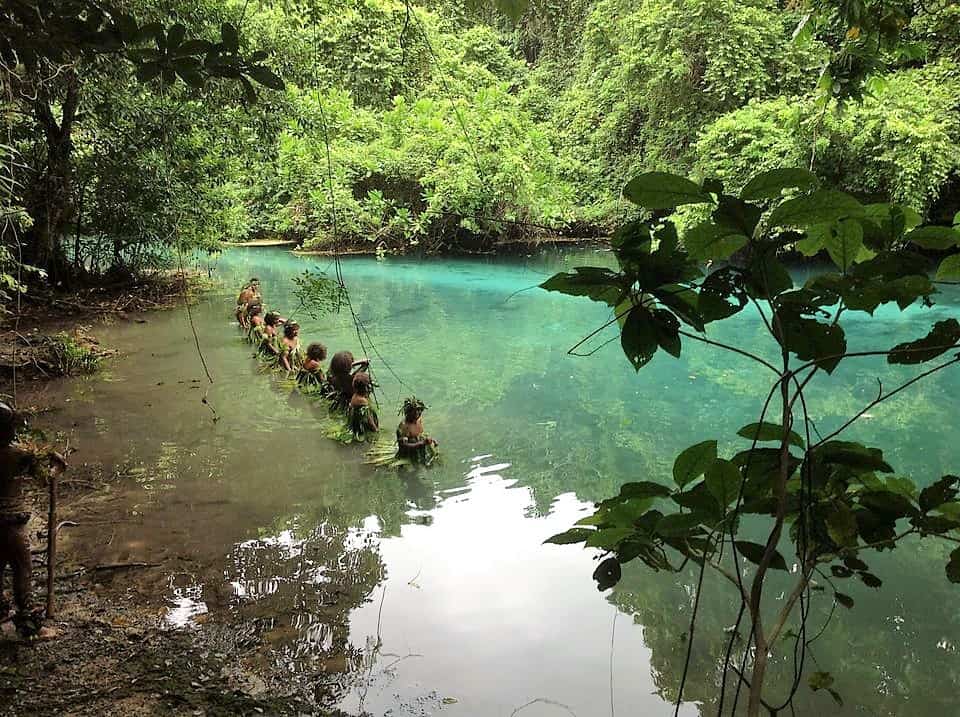In the land where there are hundreds of indigenous languages, one stands out, the unique language of women’s water drumming, or Ëtëtung.
Sandy Sur, manager of the Leweton Culture Village & Magical Water Music says, “I believe that it is important for people to understand the sacred nature of water and this is one of the major reasons that I have worked hard to revive the use of magical water music in Vanuatu.
“I see three things that connect us on earth,” he continues . . .
Please Subscribe to view full content...
